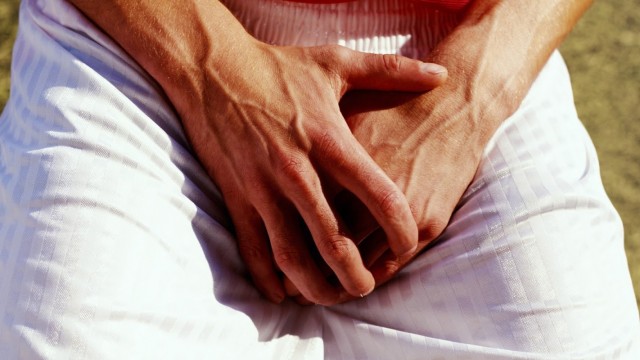
Some denounce solo sex as sin or addiction. Actually, it provides many benefits.
Whenever I’ve blogged about masturbation, I’ve received a few comments calling it wrong, immoral, sinful, a sign of addiction, and a waste of precious semen. Actually, making love with oneself is the foundation of great partner sex and a key element in therapy for several sex problems.
The Sin of Onan
Almost all ancient Mediterranean cultures regarded masturbation as inevitable, therefore, normal and acceptable. The lone exception was the Hebrews. Consider this story from Genesis. Judah, son of patriarch Jacob, fathered two sons, Er and Onan. Er married Tamar but died before they had children. By ancient custom, Onan was expected to marry his widowed sister-in-law and father sons who would become his brother’s surrogate heirs. Onan objected. Er was the firstborn, entitling him to a double portion of his father’s estate, two-thirds of the total, with Onan receiving one-third. With Er gone, Onan stood to inherit everything. If he fathered a son by Tamar, that boy would inherit the double portion, leaving Onan with much less. So instead of ejaculating inside his sister-in-law, he “spilled his seed on the ground.” Onan’s action infuriated God, who struck him dead. As a result, Judaism—and later Christianity and Islam—prohibited all non-procreative whoopee including self-sexing.
Why did the ancient Hebrews condemn masturbation? They were a small, struggling ethnic group surrounded by imperialistic powers constantly threatening conquest. To remain independent, they had to field as large an army as possible, which required sons. Consequently, the human authors of the Five Books of Moses had God decree that the only legitimate sex was procreative.
As if religious dictums weren’t sufficiently stifling, in 1760, Swiss physician Samuel Tissot published Onanism: A Treatise on the Diseases Produced by Masturbation. Without a shred of evidence, he claimed that masturbation not only offended God, but also depleted men’s bodies of invaluable semen, causing debility, illness, insanity, and death. Translated into many languages, the book became a best-seller and demonized masturbation throughout much of the world. We’re still living with the fallout.
Solo Sex: Beneficial
Of course, despite religious and medical condemnation, most people worldwide masturbate regularly, especially men who often stroke to Internet porn. The world’s most popular porn site, PornHub, attracts 35 billion views a year, almost 10 annually for every man on Earth. Most women also polish the pearl. Today, more than half of adult American women own vibrators, and only a small proportion use them in partner play.
Masturbation is by far the most popular type of sex on Earth. Today, there are more single Americans than ever before. Those without partners, or separated, divorced, or widowed comprise 45 percent of the adult American population, more than 100 million people. Most of them want to remain sexually active. Some single men patronize sex workers, but most singles play solo. This quote has been attributed to none other than Julius Caesar: “To the lonely, it is company, to the forsaken a friend. They that are penniless are yet rich thanks to this majestic diversion.”
In addition, masturbation is therapeutic. Sex therapists recommend it for many reasons:
•Sexual self-awareness. Masturbation is the way we explore the full range of our sexual responsiveness. Many sex therapists say: If you can’t enjoy making love with yourself, it’s difficult to enjoy it with anyone else.
Stress management. Stress/anxiety/worry are reactions to actual or threatened change. In today’s world, things change so quickly that many people suffer chronic distress. The National Institute of Mental Health says 31 percent of Americans suffer a clinical anxiety disorder at some point in life, and virtually everyone sometimes complains of feeling stressed out. To cope, some exercise. Others drink tranquilizing herb teas (chamomile, passionflower). Some take anti-anxiety medications. And many, especially men, reach between their legs.
•Recovery from child sex abuse. This crime not only subjects children to possibly horrific violations but also destroys many victims’ ability to enjoy sex later in life. To recover sexually, they must become re-acquainted with their bodies’ ability to experience sensual pleasure from touch. A key therapeutic tool is masturbation. Therapists who treat survivors encourage them to self-sex regularly.
•Orgasm difficulties. Almost everyone can work up to orgasm solo. But during partner lovemaking, many men and women have trouble getting over the hump. As part of therapy for orgasm difficulties, many sex therapists recommend self-sexing in front of partners so they can see what gets them off. Sex therapists also recommend coaching partners’ hand jobs and oral sex to optimize chances of orgasm. Sex therapists say: Orgasm is learned. The teacher is masturbation.
•Premature ejaculation (PE). Throughout the lifespan, PE is men’s most prevalent sex problem. In every age group, one-quarter to one-third of men complain of coming before they’d like. A history of hurried masturbation often contributes to the problem. More than half of visits to PornHub last less than five minutes. Many men inadvertently train themselves to ejaculate quickly. Sex therapy for PE begins with extending self-sexing to develop reliable control—masturbating until just before the point of no return, then backing off, and repeating this until men can last as long they’d like.
Enhanced relationship intimacy. Intimacy means self-revelation. What’s more self-revealing than showing a lover how you have sex with yourself? Many couples who masturbate for each other say it brings them closer together.
•Reduced risk of prostate cancer. Several large studies show that men who ejaculate frequently—two to four times a week—enjoy significantly reduced the risk of prostate cancer. The disease is to some extent sexually transmitted. Regular ejaculations flush out pathogens. Only a small minority of couples make love two to four times a week. Men who’d like to reduce their risk must depend largely on solo sex.
Does Masturbation Cause Erectile Dysfunction (ED)?
After solo or partner orgasms, erections subside, and men enter the recovery (“refractory”) period. They find it difficult or impossible to raise subsequent erections for a while—only minutes for some teens, but for many elderly men, twelve hours or longer. Some men are uninformed about the refractory period blame masturbation for any difficulty they have raising subsequent erections. But masturbation is not necessarily the issue. If you’re over around 40, expect your refractory period to last at least several hours, possibly up to a day. Assuming that men abstain during their refractory periods, even daily masturbation does not increase the risk of ED.
Man or woman, if you already masturbate regularly, carry on and enjoy yourself. If you don’t, your solo sex frequency is totally up to you. But you might consider upping it for stress management, to enjoy partner sex more, and as part of therapy for the problems just mentioned.

 Healthy habits help people sidestep clogged leg arteries
Healthy habits help people sidestep clogged leg arteries



